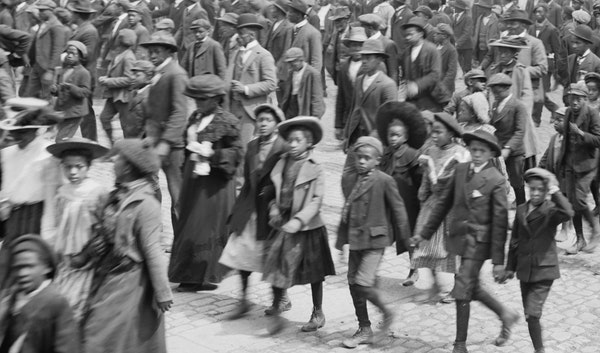Featured
Juneteenth Becomes A Federal Holiday

Congress has passed legislation establishing Juneteenth as a federal holiday, the culmination of a years-long effort to formally recognize the longstanding tradition marking the end of the Civil War for enslaved people in Texas. The U.S. Senate voted unanimously on Tuesday, and the House quickly followed Wednesday with its support.
African Americans from coast to coast welcomed the news.
Dr. Annette Gordon-Reed called the new holiday a human rights milestone.
Gordon-Reed is a Pulitzer Prize-winning historian and Harvard professor who has written a new book titled “On Juneteenth.” She joined an online discussion hosted by the Association for the Study of African American Life and History to explain the origin of the holiday.
“June 19, 1865, [General] Gordon Granger comes to Galveston and makes this announcement,” she said. “He is announcing the end of slavery in Texas. It is not the end of slavery in the United States as a whole, that doesn’t happen until December 1865 with the ratification of the 13th Amendment. That ends slavery legally. What is significant about Juneteenth, June 19, 1865, is that it takes place after, immediately after, the Confederate Army, the last vestiges of the Confederate Army, the Army of the Trans-Mississippi surrenders, and that is the end of the organized military effort to maintain the system of slavery. So Black Texans are the last people who are brought under the control, by the military, back into the Union and the end of slavery in Texas. It is not the end of slavery by law, but it’s the end of slavery in Texas by the force of the military.”
Gordon-Reed has a personal stake in the holiday’s Texas birth.
“My family on my mother’s side, and I can tell this because of Census records, when they used to do the Census, they asked people where their parents were born,” she explained, “and, I’m able to establish that on my mother’s side through one line that people were born in Texas as early as the 1820s and on my father’s side, the 1860s.”
America will now have two major holidays to celebrate within two weeks of each other, Juneteenth and the Fourth of July. While many Black Americans know the story of Juneteenth, others will now have an opportunity to learn the history of the observance that has had its share of misinformation grafted onto it.
“People often say, ‘Well, people didn’t know in Texas that there was an Emancipation Proclamation,’ said Gordon-Reed. “That’s not true. The thing is the Emancipation Proclamation could not come into effect in places that were not under the control of the Army, and it wasn’t until they surrendered, the Army of the Trans Mississippi, surrendered in June that Granger is then told to go to Texas and take control of that area.”
But the formerly enslaved were punished for the victory.
“In places where the army was not in place … people were forcibly made to stay on plantations under threat of violence,” Gordon-Reed said. “It’s a time of celebration but celebration in the midst of a lot of hostility and violence.”
Recognition of the historic developments birthed a Texas tradition that over the years spread around the country and finally into the halls of Congress.

-

 Featured12 months ago
Featured12 months agoArkansas Sheriff Who Approved Netflix Series Says He Stayed ‘In His Lane’
-

 HBCUS12 months ago
HBCUS12 months agoSenator Boozman Delivers $15 Million to Construct New UAPB Nursing Building
-

 News12 months ago
News12 months agoMillions In the Path of The Total Solar Eclipse Witnessed Highly Anticipated Celestial Display
-

 Featured9 months ago
Featured9 months agoCalifornia Is the First State to Create A Public Alert for Missing Black Youth
-

 Featured9 months ago
Featured9 months agoAfrican American Leaders Stay the Course Amid Calls for President Biden To Bow Out of Race
-

 Featured9 months ago
Featured9 months agoThe Debate Fallout Lands on Both Candidates





